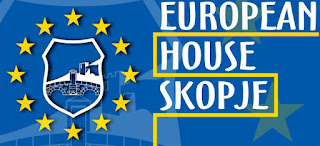The enlargement strategy presented in November by the European Commission received strong endorsement from European Union foreign affairs ministers at their December 12 General Affairs and External Relations Council in Brussels. In its formal conclusions, the Council welcomed the Commission’s Communication on Enlargement presented on 9 November 2005, and the reports, recommendations and partnership proposals that accompanied it. At the request of several member states, the EU is planning a major reflection next year on the direction, speed and scope of enlargement, in the context of the broad reflections on the future of Europe. The Commission strategy is a good basis for "a necessary, further discussion on enlargement in 2006", the Council concluded. Meanwhile, careful attention was needed to anchor and develop support for the enlargement process across the EU, taking particular account of the views of EU citizens and the absorption capacity of the Union, the Council said. Conditionality should be applied effectively, at all stages of the process, in a fair and rigorous way, the Council added, reiterating at the same time its "strong encouragement to candidate countries, and other countries in the Western Balkans, along the road to reform and stability by reconfirming their European perspective." On Croatia, which started EU membership negotiations in October, the Council underlined its commitment to the accession process, and urged the country to make further progress on all the issues identified in the Commission's November report and in the Accession Partnership that has now been agreed. The Council exhorted Turkey to continue its reforms and preparations. And it reminded the Turkish authorities that there would be an EU verification to ensure "a follow-up in 2006 on the progress made on relevant issues" set out in the EU September declaration – a reference to the formal reminders that the EU offered to Turkey on recognising Cyprus and opening up its ports and airspace to accommodate traffic with the island.
Accession Partnerships set out principles, priorities and conditions to focus candidates' preparations for accession, and provide guidance for EU financial assistance. European Partnerships are similar documents, for countries in the Western Balkans as they move towards the prospect of EU membership. Each country is expected to develop a plan with a timetable and specific measures to address the legislative, budgetary and administrative planning priorities of these partnerships, and implementation is regularly monitored by the EU. The partnerships are updated in the light of developments, and successive versions identify new priorities for action adapted to each country’s specific needs and stage of preparation.
The Council also welcomed the Commission’s November road map for the Western Balkans and the progress reports on the countries in the region. It "drew encouragement from the region’s recent progress that the EU’s policies, based primarily on the fair and rigorous use of conditionality and a clear European perspective, were proving effective." And it reaffirmed its longstanding message that the future of the Western Balkans, with its potential candidate countries, lies in the European Union. Each country’s progress towards the EU would depend on how quickly it establishes respect for and protection of minorities, and other requirements of the links with the EU, including full co-operation with the International Criminal Tribunal for the former Yugoslavia, the Council confirmed. It particularly urged Serbia and Montenegro and Bosnia and Herzegovina to build on the positive development of the recent arrest of fugitive Croatian general Ante Gotovina, and to "take decisive action to ensure that all remaining fugitive indictees, notably Radovan Karadžić and Ratko Mladić, are finally brought to justice". The Council also gave its political agreement to European Partnerships with Albania, Bosnia and Herzegovina, the former Yugoslav Republic of Macedonia and Serbia and Montenegro including Kosovo.
Search This Blog
Subscribe to:
Post Comments (Atom)
European House Skopje is an NGO in Macedonia that promotes European values, democracy, human rights, and regional cooperation. Its...

-
Small Business Ideas You Can Run From Home If you have a desire to start a home-based business, you’re part of a growing trend. As a matter ...
-
Decentralising Structural Funds' management to the regional level Decentralised programming = Decentralised implementation? Or, Why (f...
-
• Chapter 1: Doing Business In Macedonia • Chapter 2: Seling Products and Services • Chapter 3: Leading Sectors for Export and Investment • ...
No comments:
Post a Comment